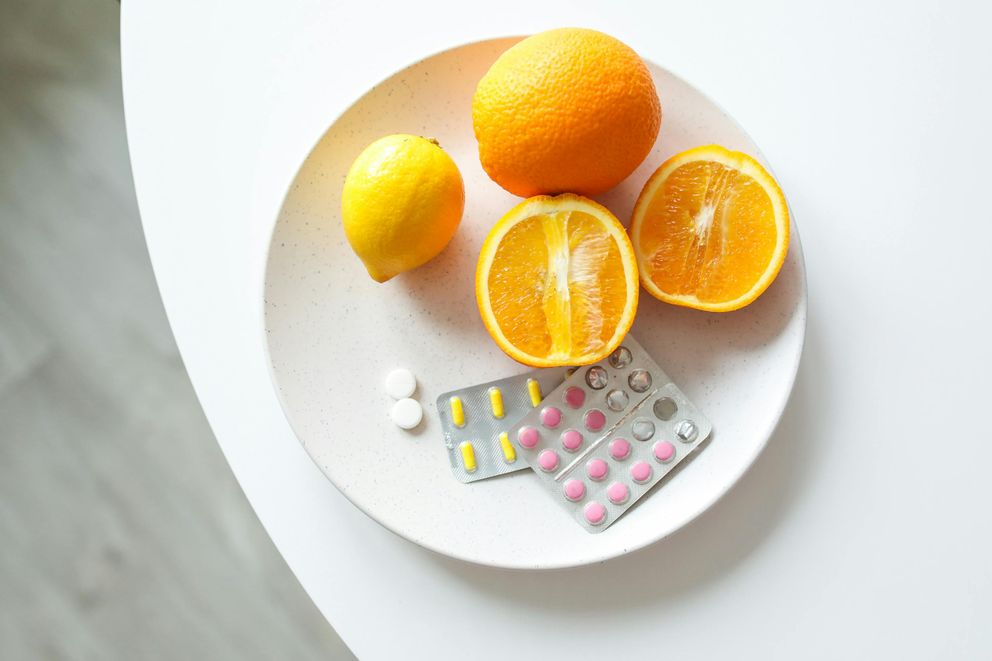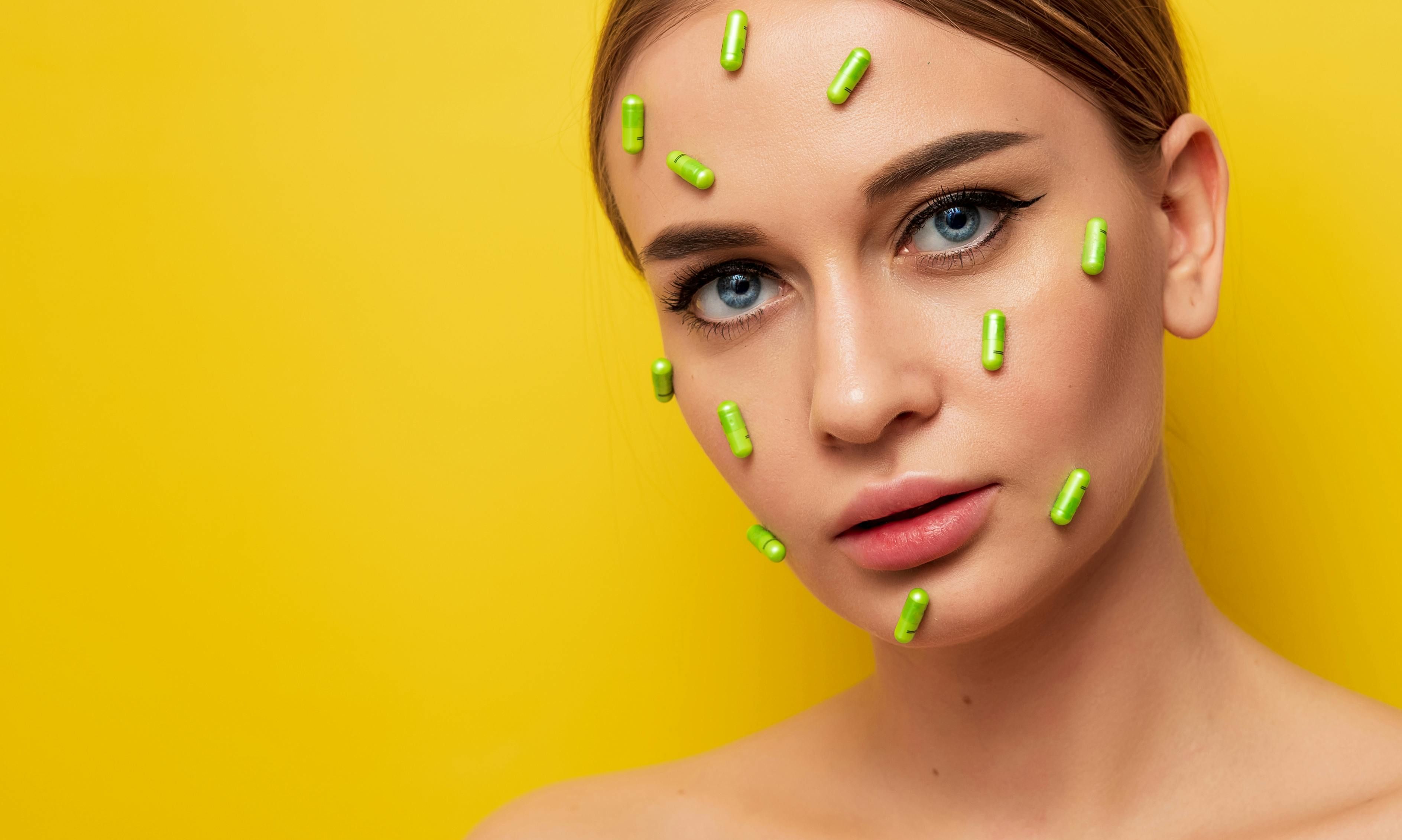
Hair Supplements for Women: What You Need to Know Before You Buy
Healthy, vibrant hair is a cornerstone of self-esteem and perceived beauty for many women. Achieving and maintaining such hair often involves more tha...

Acne is a prevalent skin condition affecting up to 85% of individuals at some point in their lives, with a significant number being women of reproductive age. The multifactorial etiology of acne involves hormonal imbalances, inflammation, hyperkeratinization, and microbial colonization, making its management challenging.
Recent research has begun to shed light on the role of dietary supplements in acne treatment, offering promising adjunctive therapies that target these underlying mechanisms.
Hormonal fluctuations play a pivotal role in the pathogenesis of acne in women, particularly fluctuations of androgens, estrogen, and progesterone. For example, androgens can increase sebum production and contribute to comedogenesis.
Conventional treatments like oral contraceptives, which target hormonal regulation, are effective but not suitable for all due to side effects and contraindications. This limitation underscores the need for alternative approaches.

Zinc’s role in acne treatment is well-documented. A review found that zinc supplementation significantly improved acne outcome compared to placebos. Zinc acts through several mechanisms, including inhibition of 5-alpha-reductase activity, antioxidant effects, and modulation of the immune system.
Vitamin A, another critical nutrient, influences cell proliferation and differentiation, essential in acne pathogenesis. A study published in The Dermatology Online Journal highlighted the importance of vitamin A in normalizing skin cell turnover and reducing sebum production.
Omega-3 fatty acids, particularly EPA and DHA, have been shown to reduce the production of inflammatory acne triggers like IL-1 and TNF-α.
A randomized controlled trial (RCT) in 45 participants published by Lipids Health And Disease showed a significant reduction in inflammatory lesions after supplementation with omega-3 fatty acids for 10 weeks.
Spearmint tea has emerged as a potential natural anti-androgen. A randomized, double-blind, placebo-controlled trial involving 42 female participants with hirsutism (a condition often linked with hormonal imbalances similar to those found in acne) showed a significant reduction in free testosterone levels after consuming spearmint tea twice daily for 30 days (Phytotherapy Research).
Probiotics’ role in modulating the gut-skin axis has gained attention. An RCT in Beneficial Microbes involving 300 participants demonstrated that the oral consumption of Lactobacillus rhamnosus SP1 significantly reduced acne lesion counts after 12 weeks.
Given the complex interplay of factors contributing to acne, a multifaceted approach involving dietary supplements, alongside lifestyle and dietary modifications, shows promise. However, it’s imperative to consult with a healthcare provider before starting any new supplement, particularly for pregnant or breastfeeding women, to avoid potential adverse effects.

Foods with a low glycemic index (GI) release glucose into the bloodstream more slowly, helping regulate blood sugar levels. A study published in The Journal of the Academy of Nutrition and Dietetics found that a low-GI diet led to a 22% reduction in acne lesions over a 12-week period.
This suggests that by choosing foods like whole grains, legumes, and fresh fruits and vegetables over high-GI foods such as white bread, rice, and sugary snacks, you might see a noticeable improvement in your skin.
The relationship between dairy intake and acne is somewhat controversial, but there is evidence to suggest a link. A review in the Journal of the American Academy of Dermatology reported that girls who consumed two or more servings of milk per day had a higher prevalence of acne compared to those who drank less milk.
This has led to the hypothesis that hormones present in milk might play a role in acne development, making a reduction in dairy consumption worth considering for individuals struggling with acne.
Stress is known to exacerbate acne by increasing the production of hormones such as cortisol, which can in turn increase oil production in the skin. Mindfulness and yoga are effective stress management techniques that have been studied for their impact on acne.
A randomized controlled trial involving mindfulness-based stress reduction (MBSR) showed significant improvements in acne severity among participants. Although direct studies on yoga specifically for acne are limited, yoga’s proven stress-reduction benefits suggest a potentially positive impact on skin health.

While supplements offer a less invasive alternative to traditional acne treatments, they are not without risks. For instance, excessive intake of Vitamin A can lead to toxicity, and high doses of zinc may interfere with copper absorption and lead to gastrointestinal upset.
Integrating dietary supplements into acne management for women presents a holistic alternative to conventional treatments, targeting the multifactorial causes of acne from within. By grounding this approach in scientific evidence, such as the studies and data highlighted here, individuals can make informed decisions about incorporating supplements into their skincare regimen, potentially leading to clearer, healthier skin. Always consult a healthcare professional to tailor treatments to your specific needs and avoid adverse effects.
A: Yes, diet can play a significant role in managing acne. Studies have shown that low-glycemic-index foods can lead to a reduction in acne lesions by slowing the release of glucose into the bloodstream, which helps regulate blood sugar levels and potentially reduces skin oiliness. Reducing dairy intake may also help, as some research suggests a link between dairy consumption and increased acne severity.
A: Stress can worsen acne by increasing the production of cortisol, a hormone that can boost oil production in your skin, leading to more acne. Techniques like mindfulness and yoga can help manage stress levels and may have a positive effect on your skin health.
A: Absolutely. Consulting with a healthcare provider is crucial before beginning any new supplement regimen, especially for individuals with specific health conditions or those who are pregnant or breastfeeding. A healthcare provider can help ensure that the supplements will not interact negatively with your health or other medications you might be taking.
A: Zinc has been documented to have a positive effect on acne due to its anti-inflammatory properties and its role in immune function. A meta-analysis has shown that zinc supplementation can significantly improve acne outcomes. However, it’s important to discuss with a healthcare provider to determine the right dosage and ensure it’s appropriate for your situation.
A: Yes, while vitamin A can play a crucial role in skin health, excessive intake can lead to toxicity, known as hypervitaminosis A. Symptoms can include dry skin, headaches, and more severe health issues. It’s important to stick to the recommended dosage and consult with a healthcare provider.
A: Starting with just a few minutes a day can be beneficial. For mindfulness, try guided meditation apps or breathing exercises. For yoga, look for beginner videos online or join a class. The key is consistency and finding a practice that you enjoy and can stick with, as stress reduction can have a cumulative positive effect on acne over time.

Healthy, vibrant hair is a cornerstone of self-esteem and perceived beauty for many women. Achieving and maintaining such hair often involves more tha...

Many women seek beauty supplements in their pursuit of radiant skin, lustrous hair, and resilient nails, hoping to unveil the elusive secret to achiev...

ADHD is influenced by a mix of genetic, environmental, and lifestyle factors, and while medication and therapy are common treatments, dietary choices ...

The carnivore diet, with its all-meat focus, is often touted for its simplicity and high protein and fat content. But for women, especially, it’s esse...

When it comes to staying hydrated, electrolytes are the unsung heroes that keep your body balanced and energized, especially for active women. Whether...